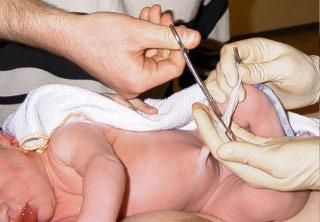Expectant parents are bombarded from all directions about what they should or should not worry about before the baby is even born - not that this ever stops after delivery. It can be overwhelming and anxiety-provoking as resources and attention get directed often toward the what ifs which can deplete them for the what actually is.
One arena that spurs preoccupation is the decision surrounding newborn umbilical cord blood banking. In an effort to, as many private companies pitch, provide a so-called “biological insurance” should a future life-saving stem cell transplant be necessary for the potential development of fatal or life-threatening disease (e.g. some cancers, immune deficiencies, metabolic or blood disorders), parents question, sometimes agonize over, whether taking on such a costly proposition that will likely never yield dividends is worthwhile.
That is a lot of potentials and possibles and maybes - especially for a process that has such rare individual return.
The good news is this subject matter has evolved substantially over the course of my career and, assuredly, will only continue to do so well into the future. Treatment advances for rare conditions have expanded the use of stem cell transplant therapies, but realistic discussion needs to be had on the still limited number of conditions for which they serve. Let’s pivot to focus on the real benefits and drawbacks to private and public donation.
Private Banking
Private donation, intended for self-use should a possible scenario ever arise down the line, incurs significant financial costs upfront (usually several thousand dollars) and annual maintenance fees (a couple hundred dollars) long into the future. This is not covered by insurance. Is it worth it?
This option serves the family who donates, not the population at large. Because this space is not subject to the same oversight and regulatory controls as public banking with respect to specimen collection, time processing to transfer, cryopreservation and storage parameters, for instance, there can be a lot of issues with quality control. It is very rare these samples get used (ie, 1 in several 1000).
Companies often overstate how hematopoietic stem cells have the potential to rescue children with debilitating disease. For example, parents believe they are saving the cord blood in the event their child inevitably develops a leukemia for which it could be used. The opposite is true. This is actually a case where their own child’s stored cord blood wouldn’t be acceptable for self-donation as it contains premalignant cells.
Now, there is utility in this realm when there is an existing disease in an identified sibling or family member known to be cured by cord blood transplantation. Such storage can be used for directed family donation.
Public Banking
This route is free. The stored samples get added to a bank that services the United States and the world, not one family, should a devastating condition warrant a donor.
The regulations surrounding collection are stringent as they must be as safe as possible for the often compromised prospective recipient (eg screening for infectious agents, extra cells for testing). Roughly 25-40% of the units collected meet this criteria to be stored in a public bank, whereas private ones due to the lack of oversight “have lesser-quality stored cord blood units with decreased viability.” For these and more reasons, “30-fold more cord blood units stored in public cord blood banks have been released for clinical purposes as compared with those released from private cord blood banks.”
Bottom Line
To know what the right decision is for you and your family, discuss the topic with your doctor ideally early on in your pregnancy. At the time of delivery is not an advisable time for a number of reasons, for instance, the appropriate materials for optimal collection need to be planned for and fully informed consent will be compromised by the hurried, urgent nature of the circumstances. Your obstetrician along with your future pediatrician who know your personal and family history will best be able to guide you. They can further elucidate for you a realistic picture of what specific scenarios would permit use of stored cord cells, when unrelated donors are preferable to familial ones etc.
This subject has matured considerably over the years and likely will continue to do so as new therapeutic advances and expanded applications enter the picture. And though there is much promise in the realm of experimental regenerative medicine and research is ongoing, at the present time there is not much evidence to support its use. This may change.
In the end, lots of promise and possibility for unlikely personal return. However, the public option can achieve a greater good as donors are needed for those currently suffering while also using cord blood for research purposes, in general, can drive medical progress. For those with familial considerations, the private bank for directed donation might be worthwhile.




